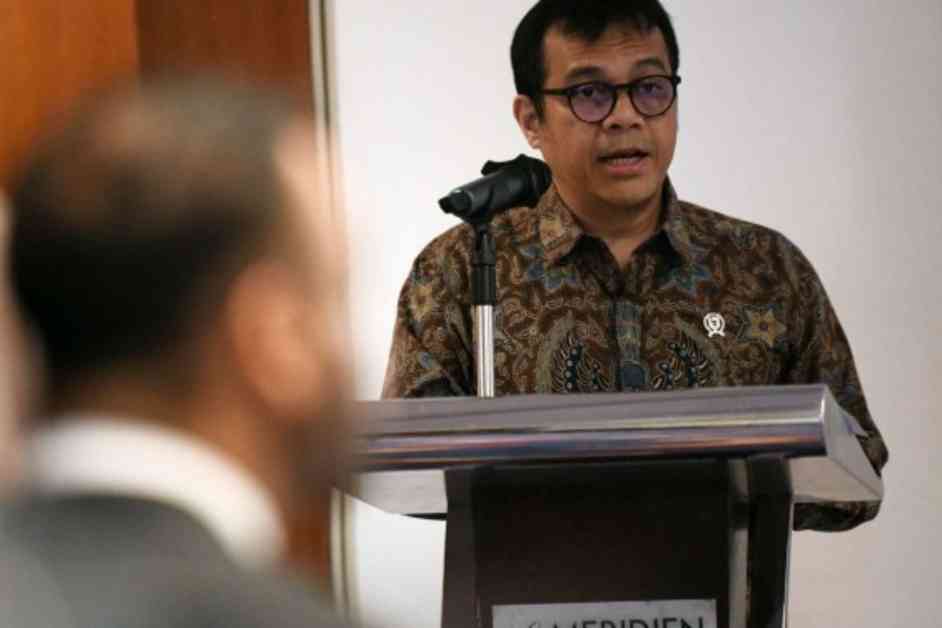Deputy Minister Calls for Collaborative Stakeholder Approach in Developing AI Regulations
In the ever-evolving landscape of artificial intelligence (AI), Deputy Minister of Communication and Digital Affairs, Nezar Patria, has underscored the need for a collaborative effort among various stakeholders to craft effective AI regulations. Speaking at the AI Policy Dialogue in Jakarta, Patria emphasized the importance of involving all stakeholders in the regulation and development of AI technology to ensure that Indonesia can seize the opportunities presented by the global AI ecosystem.
Patria highlighted the significance of industry players, academics, non-governmental organizations, and the community coming together to contribute to shaping policies that will harness the benefits of AI while addressing the potential risks associated with its utilization. He pointed out the immense potential for the e-commerce sector to leverage AI, with a projected market size of US$150 billion by 2030. However, he also acknowledged the challenges that must be addressed, such as data privacy and security, cross-border data exchange, and the risk of technology misuse.
The deputy minister stressed the importance of ensuring that the adoption of AI in the e-commerce sector delivers maximum benefits to consumers, businesses, and the community. Patria highlighted the transformative impact of AI technology on operational efficiency, personalized customer service, and global supply chain optimization. He expressed the hope that regulations governing AI technology usage would be grounded in practical realities and invited all stakeholders to provide constructive inputs to shape these regulations.
Creating a Regulation to Foster AI Innovation and Protect Public Interest
By advocating for a collaborative approach in developing AI regulations, the government aims to strike a balance between fostering AI innovation and safeguarding public interest. This approach seeks to create a regulatory framework that not only promotes the advancement of AI technology but also ensures that its deployment is in line with societal needs and values.
The government’s initiative to engage various stakeholders in the regulatory process reflects a commitment to harnessing the full potential of AI technology while addressing the ethical, legal, and social implications of its use. Through a collaborative stakeholder approach, Indonesia can position itself as a leader in AI innovation and adoption, setting standards for responsible AI use across different sectors.
In conclusion, the call for collaboration in developing AI regulations underscores the importance of inclusive decision-making processes that consider diverse perspectives and interests. By working together, stakeholders can shape a regulatory framework that not only promotes AI innovation but also upholds ethical principles and protects the welfare of society at large. As Indonesia navigates the complexities of AI technology, a collaborative stakeholder approach will be key to realizing the full benefits of AI while mitigating its potential risks.






















